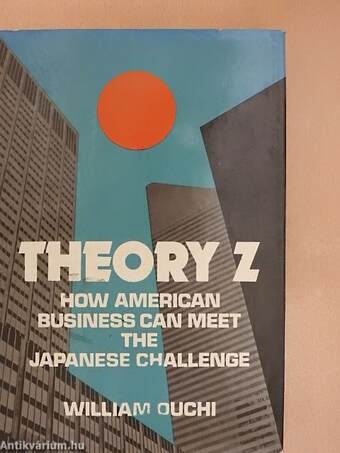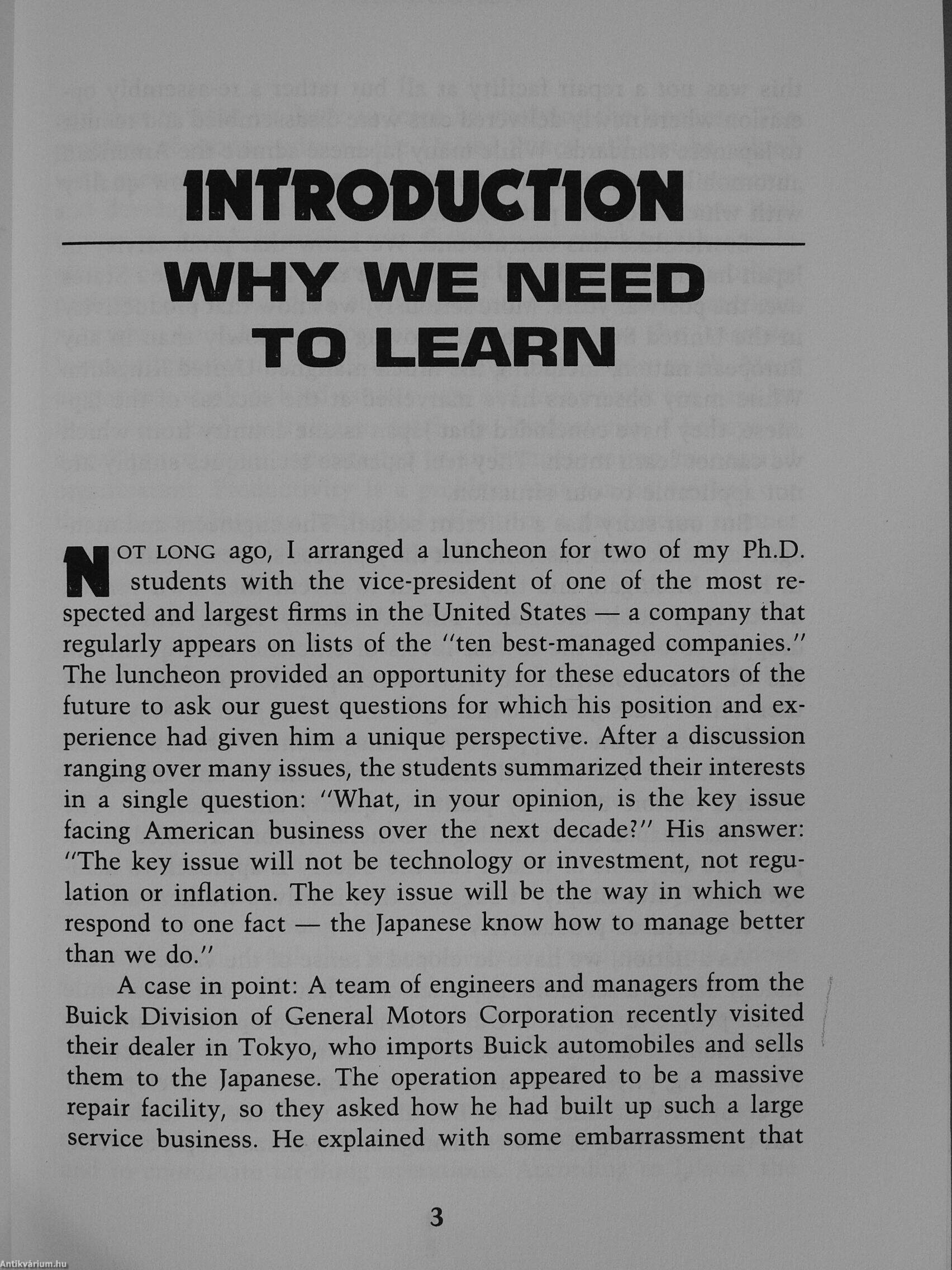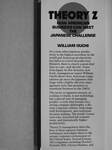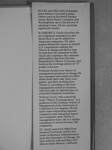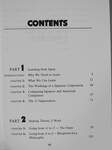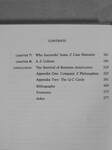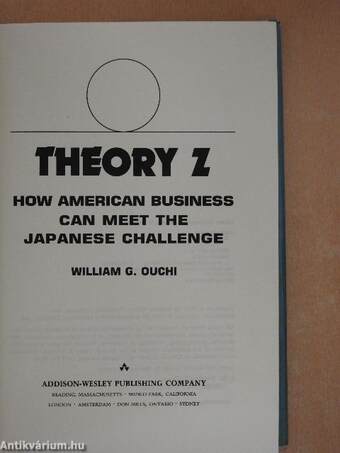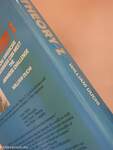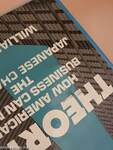1.067.691
kiadvánnyal nyújtjuk Magyarország legnagyobb antikvár könyv-kínálatát

VISSZA
A TETEJÉRE
JAVASLATOKÉszre-
vételek
Theory Z
How American Business Can Meet the Japanese Challenge
| Kiadó: | Addison-Wesley Publishing Company |
|---|---|
| Kiadás helye: | Reading |
| Kiadás éve: | |
| Kötés típusa: | Ragasztott kemény kötés |
| Oldalszám: | 282 oldal |
| Sorozatcím: | |
| Kötetszám: | |
| Nyelv: | Angol |
| Méret: | 24 cm x 17 cm |
| ISBN: | 0-201-05524-4 |
naponta értesítjük a beérkező friss
kiadványokról
naponta értesítjük a beérkező friss
kiadványokról
Előszó
TovábbFülszöveg
THEOHVZ
HOW AMERICAN BU^NESSCAN IVIEET THE
JAPAIME^rCHALLENGE
WILLIAM OUCHI
At a time when Japanese productivity is the highest anywhere in the world and American productivity has fallen to a level beneath even Britain's, there is clearly a great deal that we can—and should—leam from Japan. In this dynamic new book, management expert William Ouchi shows how American corporations can meet the Japanese challenge with a highly effective management style that promises to transform business in the 1980's.
The secret to Japanese success, according to Ouchi, is not technology, but a special way of managing people—a style that focuses on a strong company philosophy, a distinct corporate culture, long-range staff development, and consensus decision-making. The result? Lower turn-over, increased job commitment, and dramatically higher productivity.
Theory Z management takes the best of these Japanese business techniques and adapts them to the unique corporate environment of the United... Tovább
Fülszöveg
THEOHVZ
HOW AMERICAN BU^NESSCAN IVIEET THE
JAPAIME^rCHALLENGE
WILLIAM OUCHI
At a time when Japanese productivity is the highest anywhere in the world and American productivity has fallen to a level beneath even Britain's, there is clearly a great deal that we can—and should—leam from Japan. In this dynamic new book, management expert William Ouchi shows how American corporations can meet the Japanese challenge with a highly effective management style that promises to transform business in the 1980's.
The secret to Japanese success, according to Ouchi, is not technology, but a special way of managing people—a style that focuses on a strong company philosophy, a distinct corporate culture, long-range staff development, and consensus decision-making. The result? Lower turn-over, increased job commitment, and dramatically higher productivity.
Theory Z management takes the best of these Japanese business techniques and adapts them to the unique corporate environment of the United States. Several Fortune 500 companies including Hewlett-Packard, IBM, Dayton-Hudson, and
Eli Lilly used this style of management before it even had a name. Others such as Rockwell International, Buick Motor Company, and Westinghouse are in the process of adopting it now. All are reporting significant results.
In THEORY Z, Ouchi describes the art of Japanese management and shows how it can be adapted to American companies. He takes readers behind the scenes at several U.S. corporations making the Theory Z change and shows step-by-step how the transition works. Ouchi also examines the corporate philosophies that have become blueprints for Theory Z success, and looks at the evolving culture of "Z" people in society.
Professor Ouchi's new theory of management promises to change the way managers and employees ilike think about their jobs, their companies, and their working lives. Theory Z, according to the best management minds in America, will soon take its rightful place in everyone's business vocabulary.
William Ouchi, who coined the term 'Theory Z management," is a professor in the Graduate School of Management at the University of California at Los Angeles. He has spent years researching Japanese companies and examining American companies with Theory Z management styles. He is a regular consultant to several Fortune 500 companies.
Dr. Ouchi earned his MBA from Stanford University and his doctorate in Business Administration from the University of Chicago. He lives with his wife and three children in Santa Monica, California. Vissza



